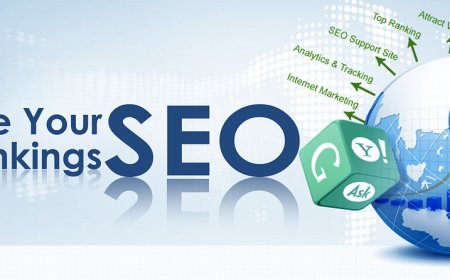How to Build a Personal Brand That Attracts Opportunities in Your Career
In today’s competitive job market, building a personal brand helps professionals stand out and attract career opportunities. This guide offers actionable steps to craft a strong, authentic presence that aligns with your goals and values.
In the professional world, a resume alone is no longer enough to stand out. Whether youre aiming for a promotion, job change, or a boardroom seat, how people perceive you your skills, presence, and values has become just as important as whats on your CV.
This is where personal branding plays a transformative role.
Building a personal brand isnt just for influencers or entrepreneurs. Its for professionals who want to become the obvious choice in a competitive industry the candidate who gets headhunted, the leader who gets invited to speak, or the specialist whos seen as a go-to expert.
Lets explore how career professionals can strategically shape their personal brand to attract growth, recognition, and new doors of opportunity.
1. Understand Your Unique Professional Identity
Your personal brand begins with clarity. What are your core strengths? What do colleagues and managers consistently rely on you for? What qualities set you apart from others in your field?
To define your brand identity, consider:
-
Your top 3 career achievements
-
Your most valued soft skills (e.g., leadership, communication, adaptability)
-
The type of problems you consistently solve
When youre clear on your strengths and purpose, it becomes easier to project confidence and build a reputation that others recognize and trust.
2. Align Your Brand With Your Career Goals
Before sharing your brand with the world, you must define the direction. Are you:
-
Seeking a leadership role in your current organization?
-
Transitioning into a new industry?
-
Positioning yourself as a subject-matter expert?
Each goal requires a slightly different focus for your brand.
For example:
-
A future CFO may focus on financial acumen, strategic planning, and business leadership.
-
An HR professional may highlight employee engagement, inclusion, and leadership development.
Tailor your messaging and presence around where you want to go not just where youve been.
3. Strengthen Your LinkedIn Profile
For corporate professionals, LinkedIn is your personal brands home base.
Heres how to optimize it:
-
Headline: Use this space to go beyond your job title. Add value-driven language like Helping tech startups scale through finance leadership.
-
Summary/About Section: Tell your professional story your values, key wins, and what drives you.
-
Experience: Focus on outcomes, not just tasks. Use metrics where possible.
-
Skills & Endorsements: Make sure they reflect your brand direction.
-
Recommendations: Ask peers, managers, or clients to endorse you with personalized reviews.
Consistency and activity on LinkedIn through comments, thoughtful posts, or article sharing reinforce your visibility in the industry.
4. Build Thought Leadership
Becoming known in your field doesnt require fame. It requires value-driven visibility.
You can position yourself as a leader in your niche by:
-
Writing LinkedIn articles or Medium posts on industry insights
-
Speaking at industry webinars or events
-
Participating in internal company panels
-
Being featured in professional newsletters or podcasts
When your ideas and voice are visible, people begin to associate your name with expertise and thats when new career opportunities start to appear organically.
5. Develop a Professional Online Presence
Google yourself what shows up?
Ideally, you want the search results to reflect a cohesive, polished digital footprint. This could include:
-
A personal website or portfolio (especially if you're in tech, marketing, or creative fields)
-
Updated bios on industry platforms or forums
-
Consistent branding across social profiles
Having control over your digital presence builds trust and credibility. It assures employers, recruiters, and collaborators that you are proactive and professional.
6. Leverage Internal Branding Opportunities
Your personal brand should be visible inside your organization too.
Heres how to do that:
-
Volunteer to lead internal initiatives or committees
-
Offer to present your team's results to leadership
-
Share success stories and lessons with cross-functional teams
-
Mentor junior employees or peers
These actions build your brand internally as a contributor, leader, and team player. They also increase your chances of being considered for promotions or high-visibility roles.
7. Network Intentionally
Your personal brand is amplified through relationships. But instead of generic networking, focus on meaningful connections.
Do this by:
-
Attending industry events or conferences (online or offline)
-
Following thought leaders and commenting on their content
-
Reaching out to peers in your field for informal coffee chats
-
Joining relevant Slack groups, forums, or communities
Networking helps reinforce your brand as a familiar name in your industry. People refer and recommend those they trust especially those whose work or insights they consistently notice.
8. Communicate Your Brand Consistently
Consistency builds recognition. Once you've defined your message, ensure its reflected across:
-
Your resume and cover letters
-
Email signature
-
Elevator pitch or self-introduction
-
Social media bios and posts
Your personal brand should reflect a coherent narrative who you are, what you do, and the value you bring no matter where someone encounters you.
Whether you're introducing yourself in a meeting or applying for a new role, you should be able to clearly articulate your unique value proposition.
9. Track, Reflect, and Evolve
Personal branding is not static. Your brand should evolve as your skills, roles, and ambitions grow.
Set time aside every quarter to review:
-
Are you still aligned with your goals?
-
Have your achievements and experience grown?
-
Are you getting the kind of attention or opportunities you want?
You may need to refine your messaging, update your profiles, or learn new skills to remain competitive and relevant.
10. Stay Authentic and Purpose-Driven
At the heart of every strong personal brand is authenticity. Your brand should reflect who you genuinely are not who you think others want you to be.
People can spot inauthenticity. If your brand feels scripted or inflated, it can do more harm than good.
Instead:
-
Be honest about your journey and growth
-
Share challenges and what you learned from them
-
Speak from experience, not theory
This authenticity builds trust and trust attracts long-term opportunities, not just quick wins.
If you're wondering how to build a personal brand that opens doors and attracts the right kind of attention in the corporate world, start by understanding your unique value, showing up consistently, and sharing your professional story with confidence.
?? Author Bio:
WestexWiki is a digital career content hub, helping working professionals and job seekers grow their online reputation, boost career visibility, and build strategic personal brands that unlock new opportunities.





































